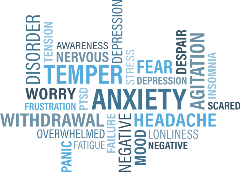Behavioral Health

Behavioral health is a major public health issue in the District of Columbia. Sadly, many of the legislative and regulatory initiatives around behavioral health are tied to other public health concerns, such as opioid addiction, maternal mortality, and health equity.
In partnership with the Washington Psychiatric Society, AMA, and American Psychiatric Association (APA), MSDC works to ensure that patients receive appropriate support for behavioral health issues, that the practice of psychiatry is supported in the District, and that psychiatrists are available to patients in the District.
MSDC was a proud supporter of the Behavioral Health Parity Act of 2017, which enshrined into law that all health plans offered by an insurance carrier meet federal requirements of the Wellstone/Domenici Mental Health Parity and Addiction Equity Act of 2008.
MSDC Statements and Testimony of Behavioral Health Issues
25th Council period information coming soon
MSDC Sends Sign-On Letter Opposing Scope Changes
MSDC sent a physician sign-on letter to Council Chair Phil Mendelson today opposing the scope of practice changes in B25-545.
The letter, seen below, asks the Chair to work with the physician community to remove scope provisions that would replace physicians as the head of the medical care team and provide less, more expensive care to patients.
MSDC and the Physician Voices for Patient Safety have worked hard on this legislation since it was introduced in November and have successfully removed many worrying changes to DC law. However, the bill, which could pass as early as next week, still contains scope changes for APRNs, podiatrists, and other allied health providers.
Physicians interested in taking action on this bill can learn more at msdc.org/scope. MSDC is especially asking physicians to contact the Council today to ask them to remove the scope provisions.
Phil Mendelson
Council of the District of Columbia
1350 Pennsylvania Ave NW
Washington, DC 20004
Dear Chairman Mendelson:
We, the undersigned physicians, urge you to remove any language in B25-545 that expands the scope of practice of allied health providers. 88% of DC physicians oppose the bill (according to a survey conducted by MSDC in March 2024 among physicians licensed to practice in Washington, DC).
Our patients deserve the safest care. A physician is the most highly trained provider on a patient’s care team. Physicians work closely with patients and other medical professionals to diagnose and treat illnesses and injuries. We take the lead on patient care because physicians have the most extensive medical training of any healthcare professional. Unlike other healthcare professionals, physicians have undergone 11-15 years of education and training after school, including four years of medical school, 3-7 years of residency/fellowship training, and up to 16,000 supervised patient care hours.
B25-545 is a bill to update the statute governing healthcare professionals, but it includes major scope of practice changes for other health professionals. In other states, removing the physician from the care team has led to worse health outcomes to patients and more expensive care for the communities where they live.
This bill is dangerous for patient care and DC residents will be harmed by expanding scope of practice to undertrained practitioners. As a physician licensed in the District, I urge you to remove all new scope of practice changes in B25-545 when you mark up the bill.
Sample of Legislation MSDC is Tracking in Behavioral Health
(see the whole list of bills here)
What does it do? The bill requires licensed health providers to complete 2 hours of CME on suicide prevention, assessment, and screening.
MSDC position: MSDC opposes the bill as written as the language does not encourage physician wellbeing or sufficient awareness of suicide prevention.
Current status: The bill had a hearing with the Committee on Health on June 10.
